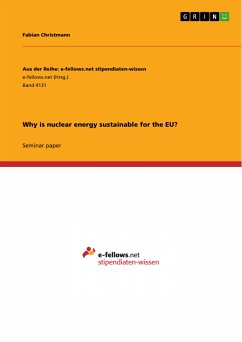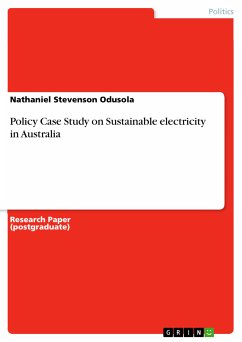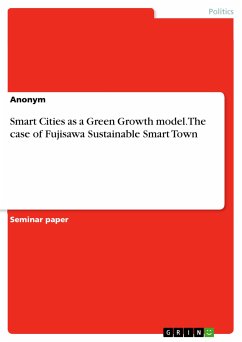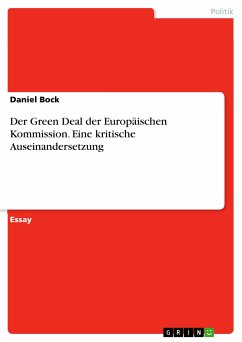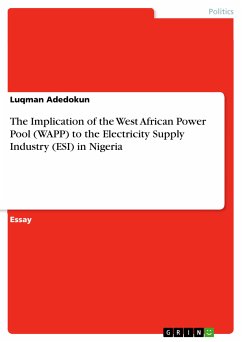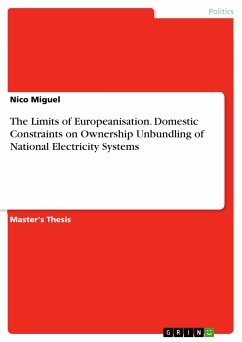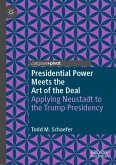Seminar paper from the year 2022 in the subject Politics - Topic: European Union, grade: 1,7, University of Münster (Institut für Politikwissenschaft), language: English, abstract: This paper is going to cover the question Why is nuclear energy sustainable for the EU? with a focus on the discussion from 2020 to 2022. In doing so, firstly the groundwork of the European Green Deal will be laid out in chapter 2 and the necessity for action will be derived, specifically the use of and classification of nuclear energy as sustainable and green. The EU Taxonomy and consequent line of argument for including nuclear energy in the Taxonomy will be presented in chapter 3 using the reports by the Technical Expert Group (TEG) and the Joint Research Centre (JRC), which conclude that nuclear energy has close to no greenhouse gas emissions and, regarding the latter report, meets the criterium of do no significant harm (DNSH). Chapter 4 will focus on criticism of the EU Taxonomy, mainly the analysis by the JRC and its risk assessment. In chapter 5 both sides will be considered when discussing whether nuclear energy should be considered green, weighing the factor of fear and risk statistics, and arguing why a fear-based anti-nuclear approach, such as the one observed in Germany, is in fact worsening the climate effect rather than helping reach the EU's goals. Finally, the conclusion will include an outlook on current developments. Climate change and global warming are amongst the most severe challenges faced by mankind today. Fossil fuel-based energy sources have greatly contributed to man-made rise in temperature. They are still necessary contributors in meeting global energy demands, yet cleaner, more sustainable, and efficient sources must be adapted in order to ensure a future for both humanity and the planet. Hence, the European Union (EU) seeks to be a global leader in reaching climate goals and transitioning towards sustainable forms of energy production. To achieve this, the European Union has set itself clear goals. Meeting these goals requires regulations steering not only national but also private market players towards a greener future. In 2022 the EU decided to include gas and nuclear energy in its Taxonomy, declaring them to be green technologies. This has been met with vast outcries from ecological organisations and led to the accussation of green washing to meet the EU's goals (Reclaim Finance 02.02.2022). Surely it might seem counterintuitive to suddenly declare formerly non-green technologies to be green. It is important to understand, why the EU changed its definition.
Dieser Download kann aus rechtlichen Gründen nur mit Rechnungsadresse in A, B, BG, CY, CZ, D, DK, EW, E, FIN, F, GR, HR, H, IRL, I, LT, L, LR, M, NL, PL, P, R, S, SLO, SK ausgeliefert werden.

